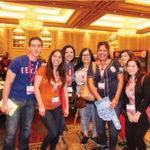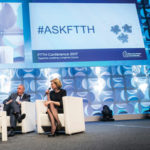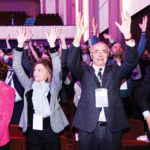
With more than 11,000 attendees each year, ASTRO’s Annual Meeting is the top scientific event focused on radiation oncology in the world — attracting medical physicists, dosimetrists, radiation therapists, radiation oncology nurses and nurse practitioners, biologists, physician assistants, practice administrators, and other industry representatives.
Last year’s ASTRO meeting in Boston drew more than 11,800 attendees and 221 exhibitors. With a focus on patient-centered care and physicians’ role in the quality and safety of care, the theme for this year’s meeting is “Patients: Hope, Guide, Heal.”
CHALLENGES
Like many meetings, ASTRO has found it challenging to balance the educational and scientific content of its program with the dynamics of the exhibition, according to Michele Donohue, ASTRO’s director of meetings. “As our Annual Meeting schedule tends to be packed with educational content,” Donohue said, “it becomes difficult to carve unopposed time in the schedule for attendees to visit and network in the exhibit hall.”
That’s become especially challenging because ASTRO recently condensed its meeting schedule from four-and-a-half days to just four. Looking for ways to adjust the schedule to allow dedicated time for attendees in the exhibit hall, ASTRO has shortened educational sessions from 90 minutes to 75.
INITIATIVES
“For the past several years,” Donohue said, “there has been a focus to bring new technology and innovation to our meeting.” This year, ASTRO will continue to enhance the information it includes in the meeting’s smartphone app, incorporating abstracts along with the attendee-evaluation and continuing-education-credit processes. “Our goal is to make the app a one-stop shop for all meeting-related information,” Donohue said.
ASTRO is also changing up its signage – switching from traditional to digital signage that not only is eco-friendly but also gives organizers the ability to more effectively deal with session changes as they occur. And, recognizing that many attendees have busy schedules that don’t allow them to leave their patients and practices, ASTRO will be webcasting a number of the general sessions live, including the keynote address, the presidential address, and the plenary session.
Networking is a huge component of the Annual Meeting, especially with the large number of attendees. The largest networking event is typically the poster-viewing session and reception, which draws more than 2,000 people “to network with colleagues and learn about the latest research and science in the field of radiation oncology,” Donohue said. During the reception, more than 1,400 posters will be displayed along with 1,000 more digital posters that attendees can search in the Virtual Poster Library, located at kiosk stations in the poster hall. During the reception, ASTRO also gives out awards to residents with noteworthy posters in biology, physics, and clinical categories.
Convene’s Pre-Con/Post-Con series asks meeting planners about their challenges and how they intend to address them (Pre-Con), and then checks back in after the meeting has occurred (Post-Con) to see how well they worked out.



